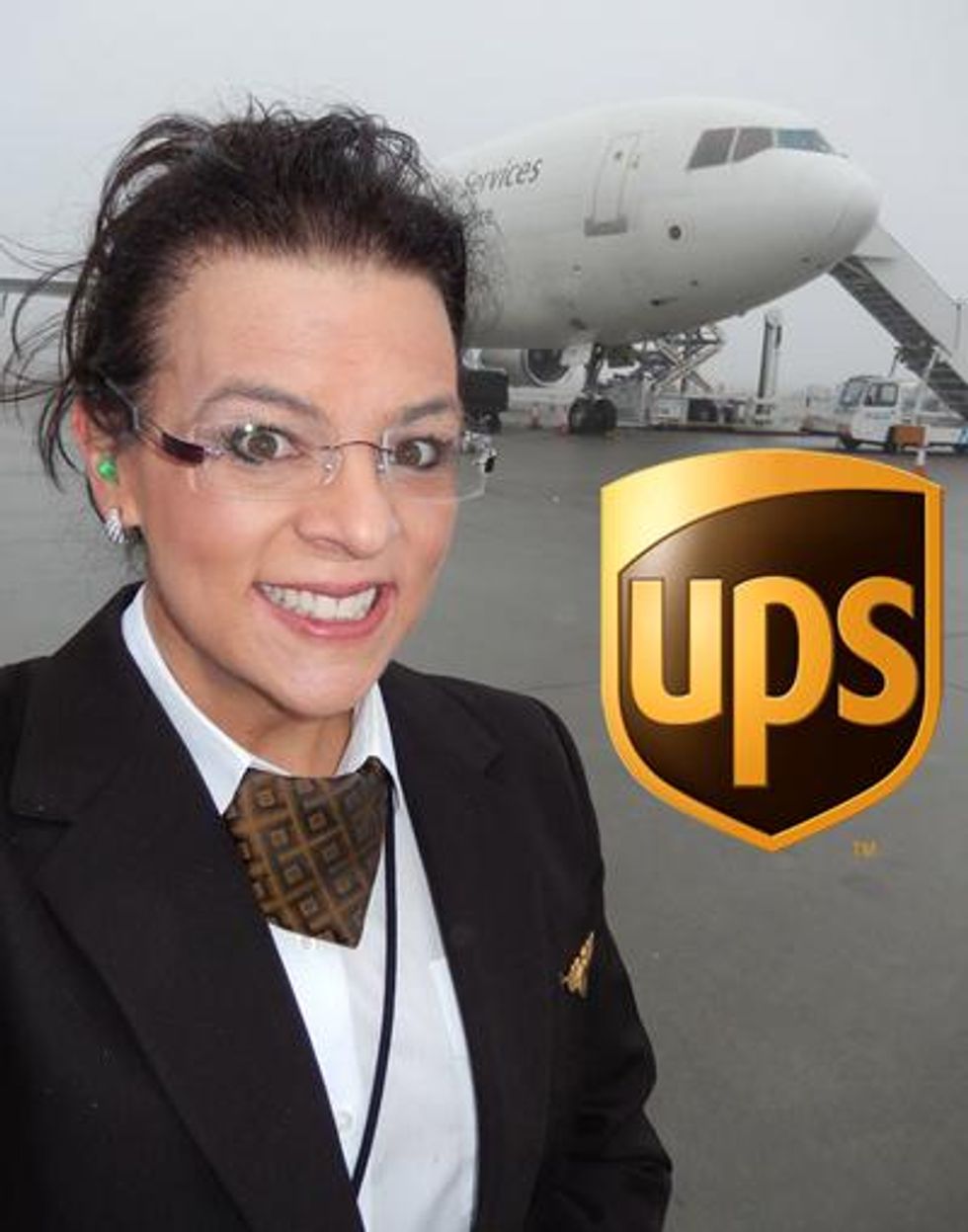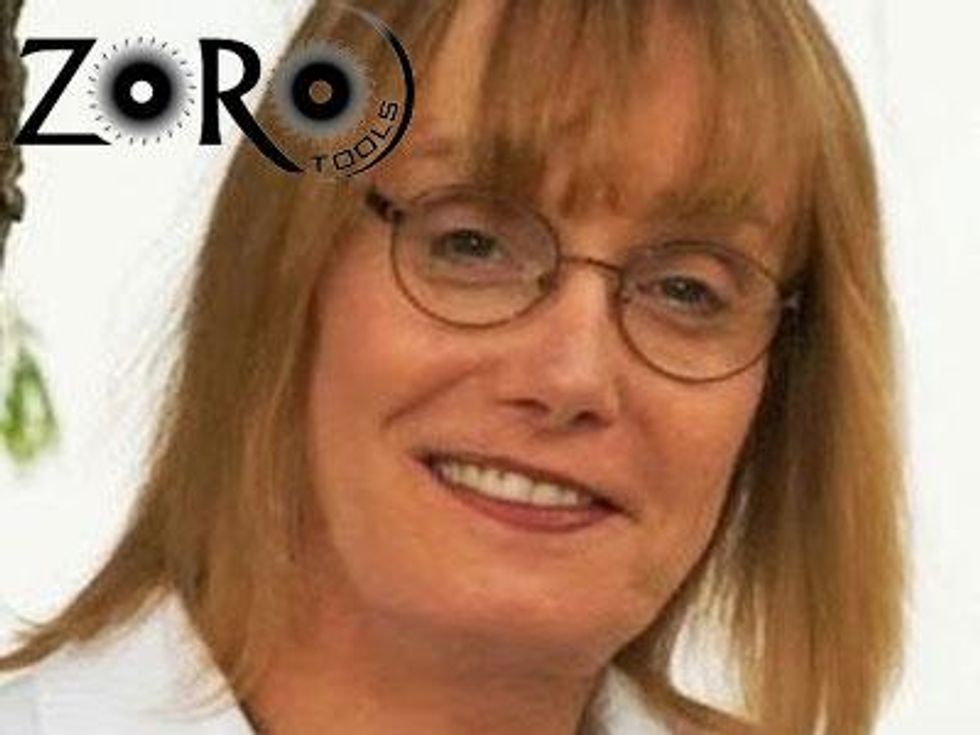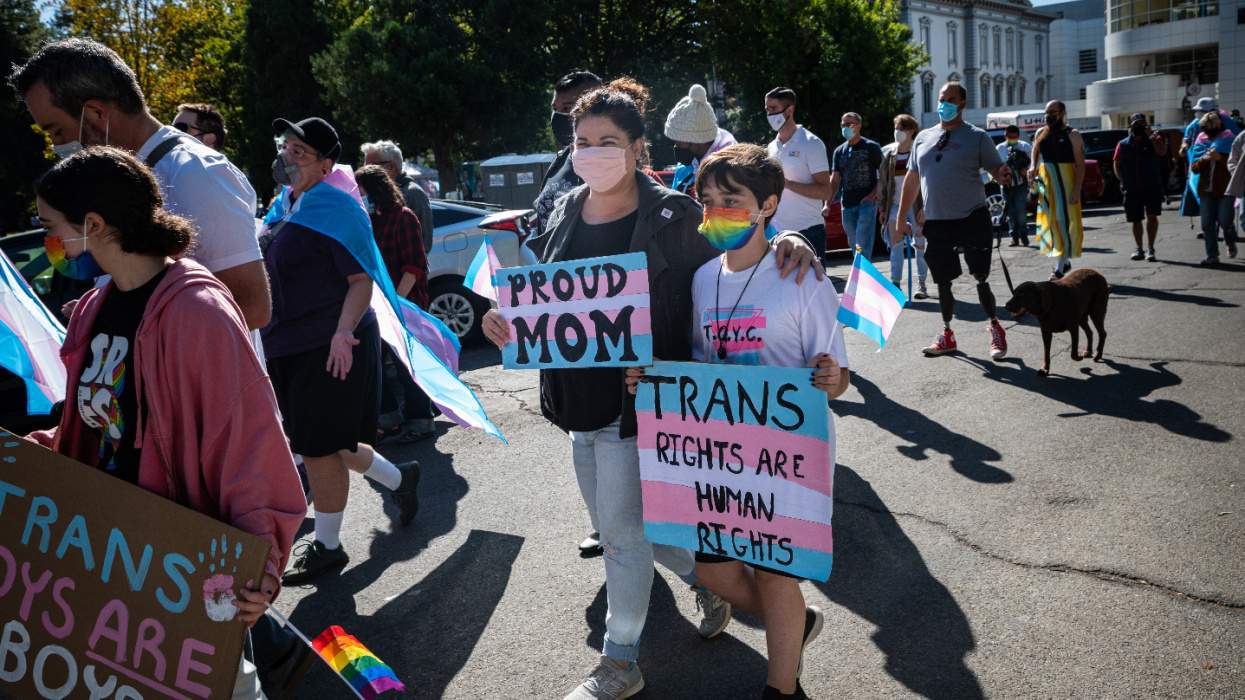While Congress continues pondering the Employment Non-Discrimination Act, business leaders are brokering the reality of a fully LGBT-inclusive workplace. Supporting employees in their efforts to be authentic, it turns out, actually improves the bottom line.
As a leading consultant directing professional trainings around trans-inclusive business practices, this writer has seen firsthand the positive effect that ripples through a company when it supports an employee's desire to transition. But the numbers also speak for themselves.
In 2000 only three Fortune 500 companies included gender identity in employment nondiscrimination policies. Today, those policies have reached nearly 60 percent of the Fortune 500. All the while, more states and municipalities are passing laws that protect the rights of transgender workers.
These changes and the relatively brief time period in which they're occurring indicate a rapidly growing awareness of transgender identities and issues throughout society and, certainly, within Corporate America. That's because the business case for transgender inclusion is solid.
Companies don't usually become transgender-inclusive out of a desire to be altruistic: They do so because they realize it's a smart business decision that can ultimately augment the bottom line in any number of ways.
For starters, transgender inclusion can help with recruiting and retention efforts. Many Gen X and Millennial employees, in particular, expect to come to work in an inclusive, diverse environment. For this reason, organizations that discriminate based on gender identity and gender expression may find themselves at a disadvantage when it comes to attracting and retaining top talent.
Many of today's most successful businesses are recognizing the value of transgender workers as an integral aspect of larger corporate diversity and inclusion (D&I) initiatives. Human resources and diversity professionals are learning that you don't have to reinvent the wheel to be trans-inclusive; instead, a meaningful transgender component can readily be integrated into an existing D&I program. Organizations are also discovering that transgender issues come with nuances that require specific awareness and necessitate new changes to achieve an inclusive workplace.
On the following pages, find two prominent examples from this writer's consulting experience that are considered case studies for success.

Kelly Lepley was a pilot and first officer for UPS. Flying big jets internationally, with major responsibility for multimillion-dollar aircraft, cargo, crew, and passengers, Lepley was engaged in an exciting aviation career that regularly took her to exotic cities around the world. From the outside looking in, it seemed Lepley was living the good life. But what bystanders couldn't see was the internal turmoil consuming Lepley's life.
Lepley had been struggling with gender identity since early childhood. A devout Christian, Lepley grew up hearing only negative messages from the Southern Baptist Church regarding any sort of gender-nonconformity. According to Lepley's faith, a transgender identity was nothing more than a lifestyle choice that could be corrected through mind games, prayer, and accountability. Lepley spent years struggling to fit into that religious box. Looking back on it, Lepley describes the situation as placing unrelenting pressure into a bottle. Over the course of a lifetime, that bottle was beginning to crack.
So while on a series of layovers in Australia, Lepley began meeting with a psychologist and an endocrinologist who specialized in gender-related issues. Over time, Lepley was diagnosed with gender dysphoria. Those conversations, combined with a lifelong awareness of an internal "gender difference," set in motion the steps needed to bring Lepley's sex and gender identity in line with one another.
After legally changing her name to Kelly in her state of residence, Lepley went to the HR office at UPS and informed the company that she planned to transition on the job. Fortunately, UPS already had a protocol in place to support workplace transitions and understood how to handle Lepley's request.
Lepley says everyone went out of their way to make sure her on-the-job transition was a success. Once her name change was official, Lepley was issued a new badge, passport, visas, and uniform -- at no expense to her.
Aviation is a heavily male-dominated profession. According to Federal Aviation Administration statistics, roughly 6 percent of professional pilots with an air transport certificate are female. Living openly on the job, especially in such a testosterone-laden work environment, was a daunting prospect. To offset the rumors and provide transparency, Lepley chose to take her story public and share it through an online pilot's forum. The response from the members of the forum was overwhelmingly positive, recounts Lepley.
Because her position was regulated by the FAA, Lepley was required to submit lab results along with a medical and psychological report to authorities. She was then given a special authorization certificate that would remain in effect until she completed her clinical and surgical treatments. Lepley underwent gender-affirming surgery in May 2012 -- and by that August, the FAA had removed the requirement for special authorization.
Lepley says the only downside to her experience transitioning on the job was that the company's health insurance would not cover her medically necessary surgery. But as the federal government implements the Affordable Care Act, providers may be compelled to cover transition-related treatments for trans clients.
From UPS's perspective, the company retained the services of a dedicated, highly professional pilot who just happened to be a trans woman.
"I love what I do, love the people I work with, and am honored to be a part of this organization," Lepley says, noting that she takes confidence in knowing that her company respects her as a person and treats her with dignity. That pride is precisely why Lepley agreed to share her story with The Advocate, doing so with the hope of inspiring other organizations to look at the benefit they receive when genuinely supporting their employees.

Naomi Ceder is living proof of how an inclusive workplace can pay dividends. An accomplished information technology professional, Ceder is also a trans woman who successfully transitioned on the job, beginning in late 2012. Her experience could be a textbook example of why growing numbers of companies choose to be supportive of their transgender employees.
Zoro Tools, an industrial supply company located in a suburb of Chicago, hired Ceder -- who, at the time, identified as a man and used a male name -- to be its information technology director. Ceder quickly became respected throughout the organization as a valued, skilled, highly knowledgeable professional.
But Zoro Tools executives had no idea that Ceder had long struggled with issues surrounding gender identity. After much deliberation and preparation, Ceder made the courageous decision to come out as Naomi and begin her transition. Still operating at work in male mode, Ceder came out to the organization's vice president, who in conjunction with the organization's president and HR director elected to be supportive of their employee living and working as a woman.
The supportive reaction from Zoro Tools served as just one real-life example of Diego Sanchez's argument that "most employers wouldn't knowingly create a hostile work environment for the employees in whom they have invested time and training." Sanchez is the director of policy for PFLAG International, and he happens to be a trans man who was a former senior policy adviser to Congressman Barney Frank.
Just as Sanchez predicted, Zoro Tools did not want to lose a valuable team member in Ceder. The company was also compelled to comply with Illinois state law, which specifically protects the rights of transgender workers.
To make sure the process went smoothly -- and legally -- the company brought in an outside consultant to provide input on the transition plan and to present transgender awareness training sessions for managers and their teams. That consultant happened to be the author of this article, who can personally attest that Zoro's strategy worked. After two days of training, the staff found itself fully introduced to the transgender phenomenon, the business case for transgender inclusion, and a special emphasis on Ceder's situation.
Because of this due diligence and attention to detail, Ceder's transition on the job has gone extremely well. Her coworkers have been respectful and accepting, and Zoro Tools was able to retain the services of a valuable, talented, and experienced IT director. The expense of working with this outside consultant was less than the considerable costs of having to locate, recruit, and hire a new employee to fill the position in which Ceder was already excelling.
What's more, Ceder is now able to bring her authentic self to work every day, resulting in a happier, healthier, and more productive employee for Zoro Tools, as it's been proven that authentic individuals are higher-performing employees. Being able to bring one's authentic self to work every day can do things like that.
VANESSA SHERIDAN is a leading provider of professional transgender business services, including consulting and training, for major corporations. Sheridan is the author of the groundbreaking book The Complete Guide to Transgender in the Workplace and is an accomplished, in-demand speaker. Find out more about her at VanessaSheridan.com.















Charlie Kirk DID say stoning gay people was the 'perfect law' — and these other heinous quotes
These are some of his worst comments about LGBTQ+ people made by Charlie Kirk.